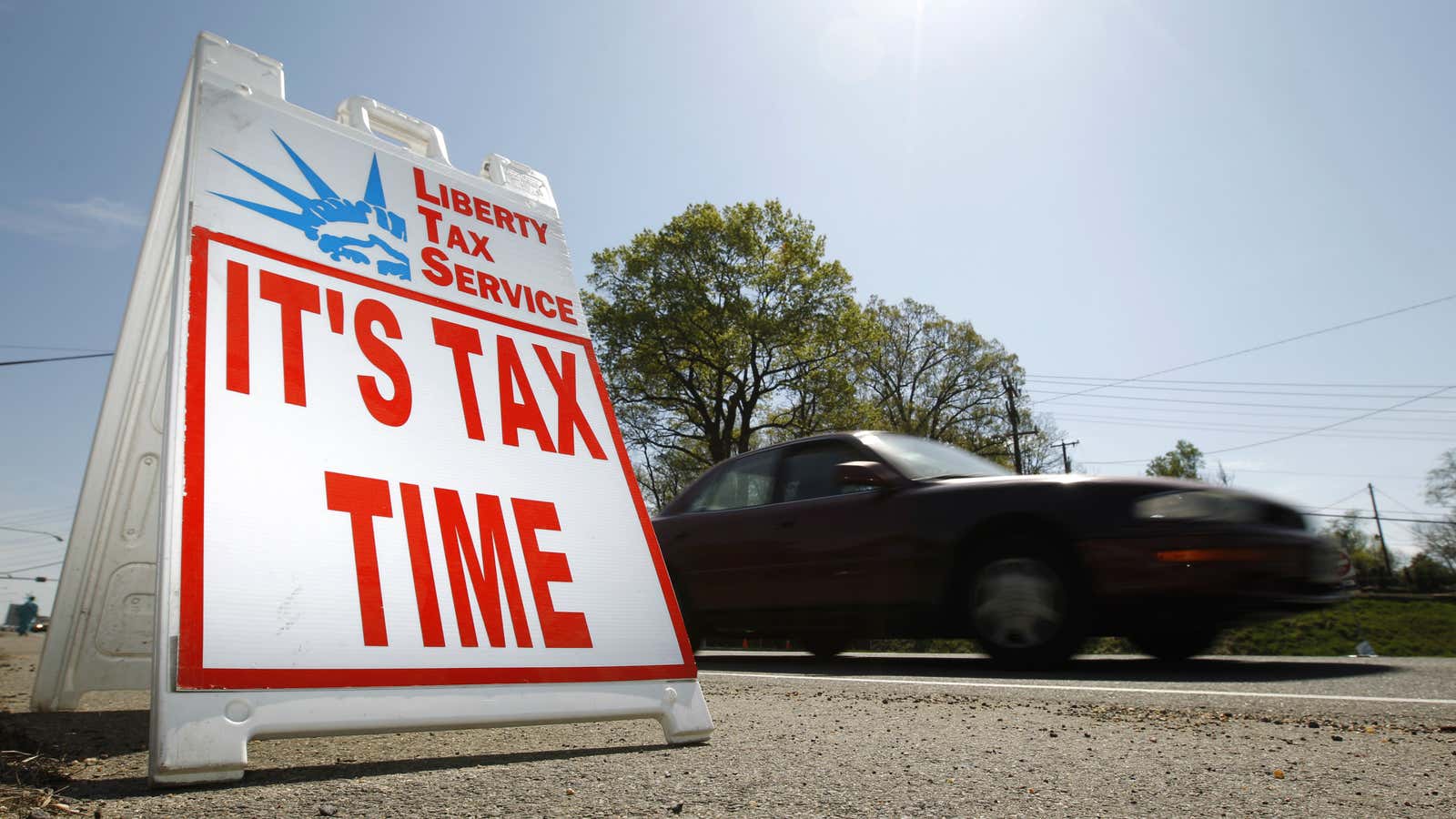If you usually wait until the absolute last-minute to file your US taxes, you get a small break this year: the 2018 federal tax deadline is April 17, two days later than usual.
April 17 is also the deadline for first-quarter 2018 estimated tax payments, as well as the last day to make a 2017 tax-year contribution to a Roth IRA or traditional IRA.
The deadline to file taxes is midnight on April 17, so mailed tax returns must be postmarked before then. E-filers also have until midnight to submit their returns online.
Why the 2018 tax deadline is April 17
April 15, the usual federal tax deadline, falls on a Sunday this year.
Normally when April is on a weekend, the deadline gets pushed to the following Monday. But Monday, April 16 is Emancipation Day, the holiday that commemorates President Abraham Lincoln’s signing of the Compensated Emancipation Act in 1863, which freed more than 3,000 slaves in the District of Columbia.
Emancipation Day is a legal holiday in Washington, DC, so the tax deadline gets pushed back an additional day.
Internal Revenue Service offices will remain open on April 16, despite the DC holiday, to accept tax returns and answer any last-minute questions from taxpayers.
How to avoid late-payment penalties
If you don’t think you’ll be able to file your taxes before the April 17 deadline, you can apply for an automatic six-month extension to avoid paying a late-filing fee. If you file for an extension, the new due date for your return will be Oct. 15, 2018. (You can get an additional extension if you live outside the country).
The late-filing penalty is the equivalent of 5% of your tax bill each month it goes unpaid and can accrue for up to five months, or 25% of the unpaid amount. The penalty will apply to anyone who files their return after April 17 without applying for an extension.
It’s important to remember that just because the government grants you an extension to file it doesn’t mean you’ve been granted an extension to pay any taxes that are due. To avoid a late-payment penalty, make sure that you’ve paid the IRS at least 90% of the taxes you owe by April 17. Otherwise, there is a penalty is 0.5% a month on your unpaid taxes, up to 25% of the total—plus interest.
How will the tax bill affect me?
Americans filing tax returns for the 2017 calendar year won’t feel the effects of the Republican tax plan that was passed in December until 2019.
That’s because the tax bill, which provided new tax rates for individual taxpayers, took effect on Jan. 1, 2018. None of the changes have an effect on 2017 returns. They will show up in 2019, when Americans file their tax returns for the 2018 calendar year.
